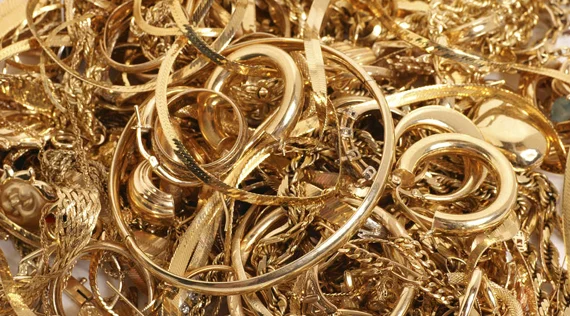
SEATTLE (Scrap Monster): The latest Gold Demand Trends Report published by the World Gold Council (WGC) suggests sharp decline in total gold supply during the first quarter of 2017. The supply of gold contracted 12% from 1,175.2t in Q1 last year to 1,032t in Q1 ’17. The mine production remained essentially flat. The drop in supply was mainly on account of sharp drop in supply of recycled gold and continued net de-hedging by producers.
The mine supply of gold totaled 764t in the first quarter of the year, slightly lower when compared with the supply of 767.8t during Q1 last year. The increase in production from new mines that came on stream in the US and Suriname was offset by weakness elsewhere.
The biggest hit to gold production came from Grasberg mine in Indonesia. According to reports, Freeport-McMoRan introduced 60% cut back on mine production following the new restrictions imposed by the government on unrefined metal exports. Lower-grade ore at Mongolia’s Oyu Tolgoi copper mine shaved off nearly 3t from global gold output. The extended New Year holidays and the stricter environmental regulations imposed by the country’s administration resulted in at least 2t decline in Chinese gold production over the previous year, WGC noted.
Going forward, high grades at Grasberg mine and ramped up production over the upcoming quarters will contribute to recovery in mine production. This coupled with smaller projects coming on stream in Canada and Australia is expected to drive global supply to higher levels in 2017 and 2018. However, the rise in output will be temporary. Mine production will soon enter a period of decline. The squeezed project pipeline, mainly on account of sharp capital expenditure cuts and lack of new discoveries, is likely to result in huge drop in production beyond 2018, said WGC report.
The overall net hedge positions by gold producers reduced by 15t in Q1 this year. It must be noted that gold producers had reported positive net hedging of 47.5t during the first quarter of 2016. Many miners are found to opt for hedging gold for the purpose of project financing or debt repayment. Higher price levels of gold normally lead to more producer hedging. As of Q1 2017, the global hedge book stood at 237t.
Recycled gold supply totaled 283t in Q1 this year, significantly lower by 21% when compared with the corresponding quarter last year. Recycling had contributed 360t to gold supply in Q1 ’16, mainly on account of high gold prices during that time. The supply from recycling during the quarter is well below the long-run quarterly average of 296.2t. Many Southeast Asian markets including Thailand and Indonesia reported considerable decline in recycling activity during the quarter. Turkey too contributed to the decline in recycled gold supply as consumers remained reluctant to part with their gold holdings in the face of political uncertainties. Also, recycled gold supply from India remained muted following the surprise demonetization move in November last year, WGC Demand Trends Report noted.
Meantime, overall gold demand from technology sector increased marginally by 3% from 76.4t in Q1 ’16 to 78.5t in Q1 ’17. The growth was led by 4% rise in demand from electronics sector. The recent developments in wireless sector turned positive for gold usage.



| Copper Scrap View All | |
| Alternator | 0.40 (0) |
| #1 Copper Bare Bright | 4.17 (-0.03) |
| Aluminum Scrap View All | |
| 356 Aluminum Wheels (Clean) | 0.81 (0) |
| 6061 Extrusions | 0.71 (0) |
| Steel Scrap View All | |
| #1 Bundle | 360.00 (0) |
| #1 Busheling | 380.00 (0) |
| Electronics Scrap View All | |